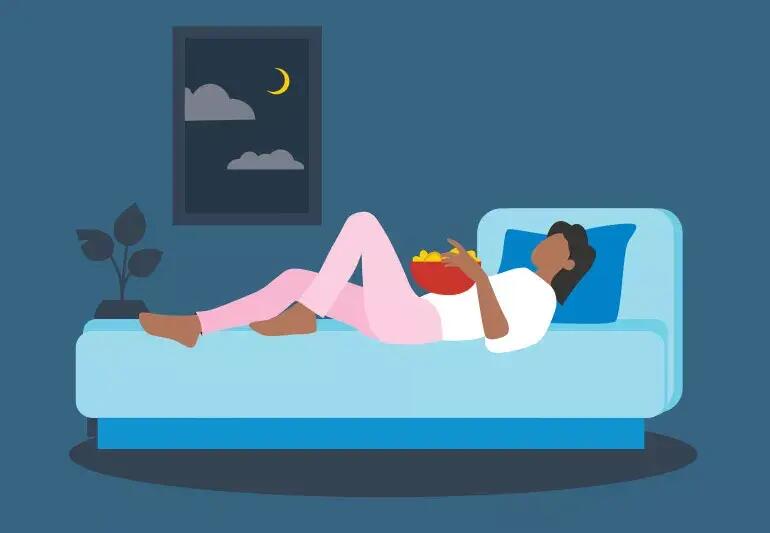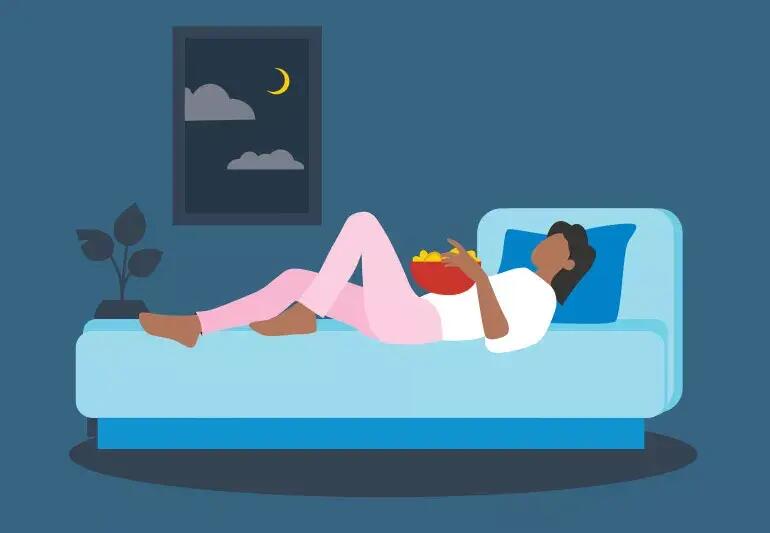It’s a common question — “Should I stop eating after 7pm?” or “Will eating before bed make me gain weight?” For many people looking to lose weight or improve their health, what happens in those final few hours before bed can feel confusing. Let’s break down what really matters when it comes to eating before sleep, especially if your goal is to lose weight, build muscle, or simply feel better day-to-day.
It’s Not Just When You Eat, It’s What and How Much
First, let’s clear up a myth: eating later at night does not automatically lead to weight gain. The real issue is total energy balance — how many calories you consume across the entire day versus how many you burn. If you’re in a calorie surplus, you’ll gain weight, whether those calories are eaten at 10am or 10pm.
That said, late-night eating can lead to weight gain if it pushes you over your ideal calorie intake — often because these snacks are mindless, emotional, or high in sugar and fat (think ice cream, chips, or wine while watching TV). So, it’s less about the clock and more about habits.
Eating Too Close to Bed Might Disrupt Your Sleep
If you eat a large meal right before bed, your body may still be working on digestion while you’re trying to wind down. This can affect your sleep quality, especially if the meal was high in fat or spice, which are harder to digest and may cause discomfort or reflux when lying down.
Poor sleep doesn’t just leave you tired — it also affects hunger-regulating hormones like leptin and ghrelin, which can increase cravings and appetite the next day. So if weight loss or consistency is your goal, better sleep is key.
Tip: Aim to finish your final meal about 1.5 to 2 hours before bed when possible, especially if it’s a full dinner.
Should You Eat Anything Before Bed?
For some people — especially those who train in the evening, have long gaps between meals, or wake up ravenous — a light, high-protein snack before bed can actually be helpful.
Something like:
* Greek yoghurt with berries
* A boiled egg
* Casein protein shake
* Small serve of cottage cheese
These options digest slowly and may support overnight muscle repair, especially important if you're doing resistance training. They also help stabilise blood sugar and keep you feeling satisfied overnight.
Final Thoughts
If your evening eating is:
* Balanced
* Mindful
* And fits within your overall nutrition goals...
…then there’s no need to fear food after 7pm.
But if you’re snacking late out of boredom or stress, it’s worth paying attention to why — not just when — you’re eating.
Eating closer to bedtime isn’t “bad,” but being intentional with your nutrition and your evening routine can make a big difference in how you sleep, recover, and feel the next day.

